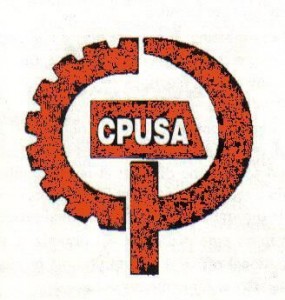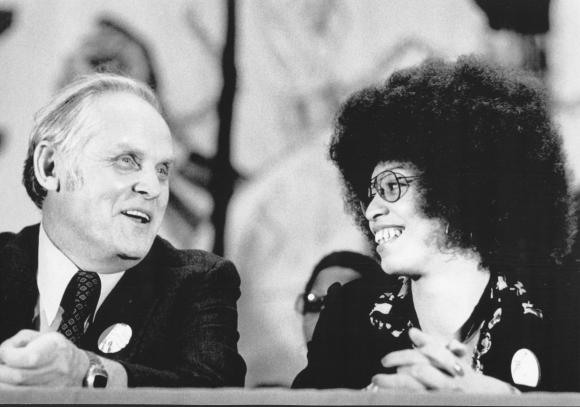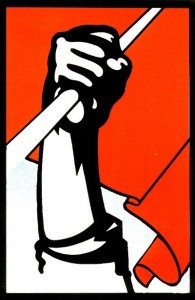By James Thompson
In the book “Henry Winston: Profile of a U.S. Communist†by Nikolai Mostovets (Progress Publishers, Moscow, 1983) can be found a recounting of a historic speech by Henry Winston at the 15th Convention of the CPUSA which was held in Harlem. The speech was later developed into a pamphlet entitled “What it means to be a Communist.â€
Mostovets tells us:
“In his speech, Henry Winston denounced some Party leaders who were showing bureaucratic inclinations. He especially elaborated on the work Communists were to conduct in the unions. Party members were to educate the working-class politically, organize the unorganized and secure a close interrelationship between the economic and the political aspects of working-class struggle. Winston stressed that economic struggle alone led to opportunism and collaboration with the monopolies. That was important because recently some left and Communist union leaders and activists have forgotten the importance of political struggle and been caught in the quagmire of opportunism.
Winston also touched on the major aspects of the Party’s cadre policy. he emphasize the importance of establishing and maintaining close contact between the party leadership and rank-and-file union members: ‘the job of leadership is not alone to guide and direct the work of others-it is also necessary to learn… from the members and the workers. Separation from the membership, from the workers can result only in bureaucracy, and placing oneself above the Party, above the interests of the workers.
‘Secondly, it is necessary to show the utmost vigilance and noting and checking the corrupting influences of our present-day society on the thinking and living habits of some comrades, to expose these influences in the interests of the comrade himself, but primarily in the interest of the party as a whole.
‘Thirdly, it is necessary to eliminate all self complacency, cliquish and ‘family circle’ atmosphere in relationship between Communists, especially rooting out all elements of false praise and flattery. For, as one wise comrade put it, flattery corrupts not only the flattered but the flatterer as well. Fourthly, it is necessary to apply criticism and self-criticism in the molding of Party cadres. Criticism and self-criticism are not to be applied on occasions-on holidays-so to speak. They must be applied daily, as indispensable weapons in the examination of the work of our Party and the individual cadres… Only by learning the lessons from mistakes can our Party cadres develop Communist methods, habits, and qualities of leadership.
‘Finally, only those leaders can withstand the pressures of enemy ideology, can relentlessly fight against opportunism in practice, who constantly strive to master Marxism Leninism-the great liberating science of the working-class which alone gives us the confidence in the inevitable victory of the working-class, headed by its Communist vanguard. Those who see only backwardness, immobility and disunity in the working-class are bound to ignore the essential truth that it is the working-class that possesses all the necessary qualities to bring about the transformation of society and build Socialism.'” (PPS. 46-47)
At the end of the book, there are several tributes to Henry Winston:
“The Soviet people know and deeply respect Henry Winston, a staunch revolutionary and Marxist scholar, a sincere friend of the USSR and other socialist countries, and a dedicated champion of friendship between the Soviet and the American people, of peace throughout the world.
On February 4, 1977 the Learned Council of the USSR Academy of Sciences Institute of US and Canadian studies conferred a doctorate honoris causa on Henry Winston. Pravda wrote in this connection: ‘Henry Winston, a prominent figure in the international communist movement, has been awarded this degree for his outstanding contribution to the national liberation struggle theory, for his profound scholarly analysis of practical revolutionary struggle by the working people of the United States for a democratic and social transformation of society, against imperialism and racial discrimination.’
Henry Winston was in Moscow during the 26th Congress of the CPSU is a member of the CP USA delegation.
Upon his return to the United States he declared: ‘I am proud that I have witnessed a historic Congress. The Soviet Communists have advanced a program of further raising the people’s well-being and a comprehensive platform of struggle for peace, détente and disarmament. Only this road of concrete and constructive negotiations and accords to curb the arms race can save mankind from the threat of nuclear catastrophe. This isn’t glaring contradiction to the policies of the current Republican administration. The latter not only dooms millions of Americans to poverty and unemployment but also pushes the world to the brink of catastrophe accelerating war preparations and fomenting anti-Soviet hysteria. Common sense demands acceptance of the Soviet proposals. Today, we American Communists view efforts to publicize and explain the new Soviet peace initiatives to our people as one of our foremost tasks.’
On April 2, 1981 Henry Winston turned 70 years old. The Central committee of the CPSU sent him the following message to mark the occasion:
‘Dear Comrade Henry Winston,
‘The Central Committee of the Communist Party of the Soviet Union since you warm fraternal greetings and heartfelt congratulations on your 70th birthday.
‘You are well known as a prominent leader of the US Communist Party who has devoted all the long years of his sociopolitical activities to a courageous struggle for the interests of the working class and all the working people of his country, against racism and reaction, for genuine equality, democracy and social progress. Your unwavering loyalty to the ideals of Marxism Leninism and proletarian internationalism has gained you prestige with the world Communist movement. The Soviet people value highly your tireless efforts in the name of peace, disarmament, understanding and peaceful cooperation between the peoples of the United States and the Soviet Union.
‘We wish you, dear Comrade Winston, good health and success in your work for your people, peace and progress.’…
Henry Winston received messages of congratulations from other Communist parties, progressive organizations and individuals. Among them was a message from Fidel Castro:
‘On your 70th birthday, we wish to extend greetings from our Party and reiterate the admiration of our people feel for a life dedicated to the Communist cause.
‘We Cuban Communists heard in your voice the message of solidarity from the most just people in North America at the Second Congress of our Party. We wish you knew success in your indefatigable struggle for social justice and peace.’
And another message:
‘On the occasion of your 70th birthday, please accept the Portuguese Communists’most sincere wishes of good health, fruitful work and personal happiness, as well as our tribute to a lifetime wholly dedicated to the cause of liberation of the working people.
Alvaro Cunhal
General Secretary
Communist Party of Portugal’…
Gus Hall… had written in an article to mark Winston’s 60th birthday: ‘the bonds that unite us are something more than political ties. We are brothers in regard each other with particular wants, typical of soldiers fighting for a, and in just cause. In this sense we happen to represent the common destiny which unites white and black workers in a close brotherhood of class, in a union for national liberation and working-class struggle. They are involved together in a single worldwide revolutionary process which embraces all nations and all races and which is aimed at freedom and prosperity for all mankind.'” (pps. 130-132)
Two more tributes can be found on the back cover of this book:
“The life of Comrade Henry Winston is a proud page in the history of our Party. It is an illuminating page in the history of the working-class, in the history of Black Americans fighting against racial and national oppression. It is a page of leadership, of courage, of dedication. It is commitment to the full measure.”
Gus Hall
General Secretary, CPUSA
“The spirit that animates Henry Winston infuses the courageous and beautiful people who are fighting imperialism. It is the spirit of people who know deep down within themselves which side they are on, and who know, to, that their side-our side-is invincible.”
John Abt














